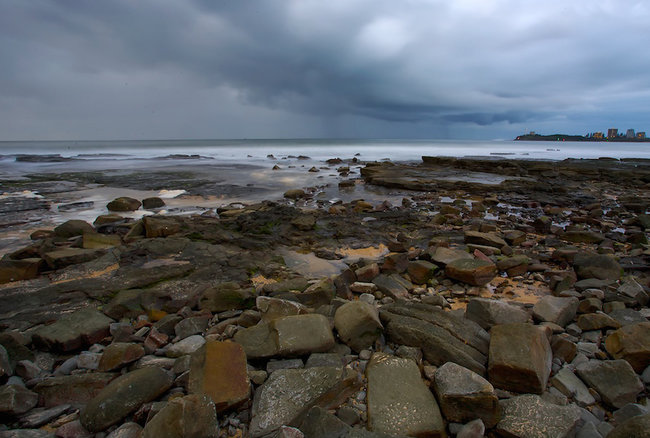I’ve always felt like something was missing from our teaching on a very common parable: the house built on the sand and the house built on the rocks. (I’m sure there’s a catchier name for it, but I can’t recall one.) In my small group, recently, I got a taste of what that was.

Everyone then who hears these words of mine and does them will be like a wise man who built his house on the rock. And the rain fell, and the floods came, and the winds blew and beat on that house, but it did not fall, because it had been founded on the rock. And everyone who hears these words of mine and does not do them will be like a foolish man who built his house on the sand. And the rain fell, and the floods came, and the winds blew and beat against that house, and it fell, and great was the fall of it.” (Matthew 7:24-27, ESV)
The standard teaching focuses on the rocks and sand, generally through the lens of a quality foundation. The sand is a terrible foundation. It expands and contracts depending on if it is wet or not. The dry grains of sand don’t bind to each other leaving it prone to shifting.
The rocks, on the other hand, can weather elements, are large enough to build a house on a single rock, and are strong enough to support the extra weight. It’s no surprise that when the storm comes, the rock house survives while the sand house is destroyed. This is usually where the sermon ends with a line such as, “So build your life on Jesus, because He is your rock.” At least, that’s how it goes in the heavily Southern Baptist culture I was raised in.
While that closing statement has worth and is completely true, I feel like it ignores an entire element of the parable: What the builders are doing.
See, there’s a funny phenomenon I’ve noticed recently when it comes to land. Generally, it holds value for people who own it, people who want to own it, and people who can draw value from it. For other people who have no stake in it, it’s just a field, maybe with some trees. There is no value.
A timely example is my church. We’re in the “town hall meeting” phase of purchasing some land next to our current campus. I drove past this field every day during my internship with this church, and even now, I pass it several times a week. Over the span of two years it never had value; I never paid it any attention.
But now that it may become part of my church and I’m hearing about the amazing plans the leadership has for it, I treasure what a field in Middle Tennessee can have. To me, the value isn’t the land, but how it’s being used.
So, back to Matthew 7: Think about how this phenomenon (as I generously call an observation solely on my own experience) relates to your walk with Christ. The foundation of rock represents a Christ-centered life, while the sand represents everything else you can chase. This has value to you, which is great, but does nothing to draw in others as we are called to do. To draw someone in, you have to do something with it. You have to build on it.
What you build depends on your calling. I know a man who started a tiny father-son flag football tournament that has grown into a major local outreach and has spread over hundreds of miles with over 1,100 participants this year. That is part of the house he has built. I write for Single Roots and work for a company that helps hundreds of people daily. That is my house.
What we build is what other people notice. We build what draws them in. Our calling to build a life for Christ is as important as making Him the foundation of it.
Remember, we are called to be a City on a Hill. If I were a betting man, I’d bet that city is built on very sturdy rocks.
Photo credit: Tanya Puntti